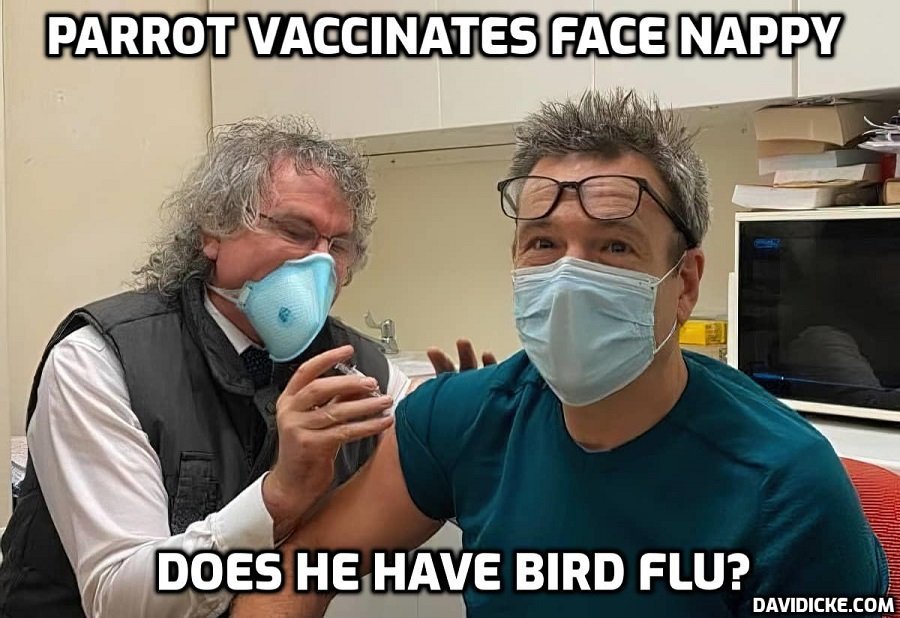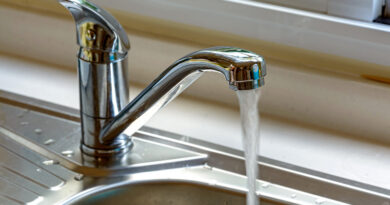MP Bob ‘No-brainer’ Seely offers Isle of Wight as a pilot location for fluoride in drinking water experiment – it’s not yours to offer you disgusting piece of work and if it’s such a ‘no-brainer’ publicly debate it with me. We don’t have enough dentists so let’s poison Island drinking water with something that doesn’t help teeth anyway – that’s what this idiot is saying

‘Finally, on fluoridation, which my hon. Friend the Member for Mole Valley raised, I think this is a no-brainer. It is very difficult to make a case against it. The Minister was kind enough to grab coffee with me, last week or the week before, to talk about public health schemes. If he is looking for a test case, fluoridation is a scheme that could be very easily introduced to a large area of the UK that is highly measurable because it is separated by sea from the mainland—clearly I am talking about my constituency. We are self-contained and have only one local authority and one water authority to deal with, so if there was a desire to introduce another fluoridation pilot scheme or pilot a roll-out, that could be done very successfully on the Island. Given that we are seeing dental problems and have a shortage of dentists on the Island, may I respectfully suggest, if there is to be a move to fluoridation, as my hon. Friend the Member for Mole Valley rightly suggested, that it please start where it is arguably most needed—on the Isle of Wight?’
Read more …
It is a pleasure to serve under your chairmanship, Ms Bardell, and I thank the hon. Member for Bedford (Mohammad Yasin) for organising the debate. The Minister knows that I have spoken on these dentistry issues on several occasions, and I have written to her as well. As discussed with the Minister, I will be writing to the Treasury on these issues this week, because the Minister is a champion of public health, dentistry, pharmacy and other issues, as she rightly points out, but there is a cash problem here as well. I am aware that she is doing her best in difficult circumstances, and covid presents a unique set of circumstances. I agree with my hon. Friend the Member for Mole Valley (Sir Paul Beresford) that we are seeing an improvement under the Minister—or we should see an improvement once covid gets lifted.
Islanders are facing issues, however, in relation to dentistry. It is, frankly, just very difficult—nig,h-on impossible in some parts of the Isle of Wight—for families to find an NHS dentist. I thank the Minister for the extra money to soak up some of the outstanding appointments, but that money was reasonably limited and it went very quickly. Some Islanders who are getting a new dentist are now having to go to the mainland for treatment. That is incredibly inconvenient, especially given that, with the most expensive ferries in the world, some kids on the Island have never seen a dentist in their life.
The Healthwatch England report found that 7 in 10 people find it difficult to access an NHS dentist. The same body published data in 2019 showing that 85% of dental practices across the country were closed to new patients. That is absolutely reflected in my constituency. As well as the inconvenience and the damage to the nation’s dental health, it will cause us problems in the longer term, as suggested by my hon. Friend the Member for Mole Valley. That is because we know that there will be a significant rise, potentially, in cancer cases: one of the side effects of a lack of dental appointments is that we will not be able to spot cancers like mouth cancer, and ill health, when they show themselves in people’s mouths. We know, also, that gum disease is associated with heart disease, so there is a knock-on effect on other bits of the health service.
As I have discussed with the Minister, my worry is that—as with pharmacies—because we have a cash-flow problem in these areas, that problem will exhibit itself as greater, and frankly more expensive, problems further down the line. Dental practices were clearly facing issues before covid. The challenge is, in part, a workforce one. The British Dental Association found that 75% of dental practices are struggling to fill vacancies. Over half of newly-qualified NHS dentists under 35 are thinking of leaving the NHS in the next five years, with many going into private practice. It is good that they are staying in dentistry but bad that they are leaving the NHS, because the NHS is where we now need the acute dentistry support.
Dental schools are not producing enough dentists. The nearest dental school to us is in Portsmouth. These problems seem to be exacerbated in coastal, rural, isolated areas. We are isolated by being cut off from the mainland by the Solent, and we are also coastal and pretty rural. We are experiencing these factors on the Island more, arguably, than many other parts of Britain. We also have an issue on the Island with dentists retiring or leaving early, and that is specifically the case among several of them. That will put our system under even greater threat, not only for NHS dentists but also specialists working in dental labs on the Island and indeed elsewhere. I have talked about that on numerous occasions.
There is no easy fix to these problems, but there are some potentially reasonably quick wins. I want to mention a few now, to see if I can interest the Minister in them.
The initiation of a dental training scheme on the Island would be incredibly helpful and would deal with one specific hotspot. If someone trains here on the Island, there is nothing to stop them then going back to the mainland, so we would not only be training dentists for the Isle of Wight—it would be good if we were—but if we have an overflow of dentists there is no reason why they cannot go back to the mainland after their training.
Can we have a simplification of the process for qualifying as a training practice, and then a boost to the funding for interns’ salaries? We are not talking about significant amounts of money here, but these measures will pay dividends in the long run. According to people who are clearly much more expert on these matters than I am, it is important to make changes to the contracts to incentivise remaining in the NHS. It is also important to separate laboratory fees from dental fees, which will help laboratories to survive as well.
Finally, on fluoridation, which my hon. Friend the Member for Mole Valley raised, I think this is a no-brainer. It is very difficult to make a case against it. The Minister was kind enough to grab coffee with me, last week or the week before, to talk about public health schemes. If he is looking for a test case, fluoridation is a scheme that could be very easily introduced to a large area of the UK that is highly measurable because it is separated by sea from the mainland—clearly I am talking about my constituency. We are self-contained and have only one local authority and one water authority to deal with, so if there was a desire to introduce another fluoridation pilot scheme or pilot a roll-out, that could be done very successfully on the Island. Given that we are seeing dental problems and have a shortage of dentists on the Island, may I respectfully suggest, if there is to be a move to fluoridation, as my hon. Friend the Member for Mole Valley rightly suggested, that it please start where it is arguably most needed—on the Isle of Wight?


